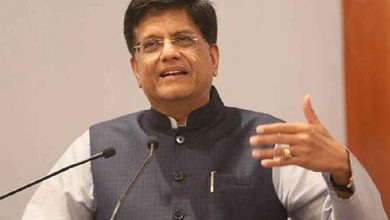UBS ups average inflation print to 5% with more upside risks

Mumbai, Jun 25 (PTI): After consumer price index jumped the 6.3-per cent mark in May and wholesale inflation set a record of 12.94 per cent, house economists at Swiss brokerage UBS Securities have warned that the country is facing more upside risks on the inflation front that is set to averaging at 5 per cent for the year.
Rising prices of edible oils and protein rich items pushed retail inflation to a six-month high of 6.3 per cent in May, breaching the comfort level of the Reserve Bank and thus rendering reduction in interest rates a difficult proposition in the near term. Led by petrol price, that has crossed the Rs 100-mark in many states, wholesale inflation too accelerated to a record 12.94 per cent in May. While crude oil has crossed USD 70 a barrel on account of rising prices of crude oil and manufactured goods due to spike in commodities, and the low base of last year due to the lockdown. While the consumer price index (CPI) rose from 4.23 per cent in April to a six-month high of 6.3 per cent, food inflation soared from 1.96 per cent to 5.01 per cent in May. The previous high in retail inflation was 6.93 per cent in November 2020.
In May 2020, the WPI inflation was -3.37 per cent and in April 2021, it hit double digits at 10.49 per cent. This is the fifth straight month of uptick seen in WPI.
CPI inflation is to remain above the RBI’s medium-term target of 4 per cent and will average at 5 per cent in FY22 with more upside risks, Tanvee Gupta Jain, the chief India economist at UBS Global Research warned in a note.
She expects the near-term CPI trajectory to be affected by any seasonal pick-up in prices of fruits and vegetables during the monsoons, supply-side disruptions due to the resurgence in the pandemic cases alongside the impact of mobility restrictions, and movement in global commodity prices and input cost pressures.
However, the report notes that except for edible oils which India imports in large quantities, the country is largely self-sufficient in food production and in fact is a net agri-exporter.
This reduces the direct impact of higher global commodity prices on domestic food prices even as indirect impact will be visible with a lag, she says.
The government has asked the Reserve Bank to keep the retail inflation at 4 per cent with a margin of 2 per cent on either side.
CPI inflation has breached the upper band of the inflation target about 10 times since the first meeting of the Monetary Policy Committee in October 2016.
The RBI has projected CPI at 5.1 per cent during FY22–5.2 per cent in Q1; 5.4 per cent in Q2; 4.7 per cent in Q3; and 5.3 per cent in Q4, with risks broadly balanced.
It can be noted that on the back of the rebound in global economy after the reopening of post-the first and second waves of the pandemic, inflation, which has been rising across the world has become a pain point for policy makers in general and the central banks in particular.








